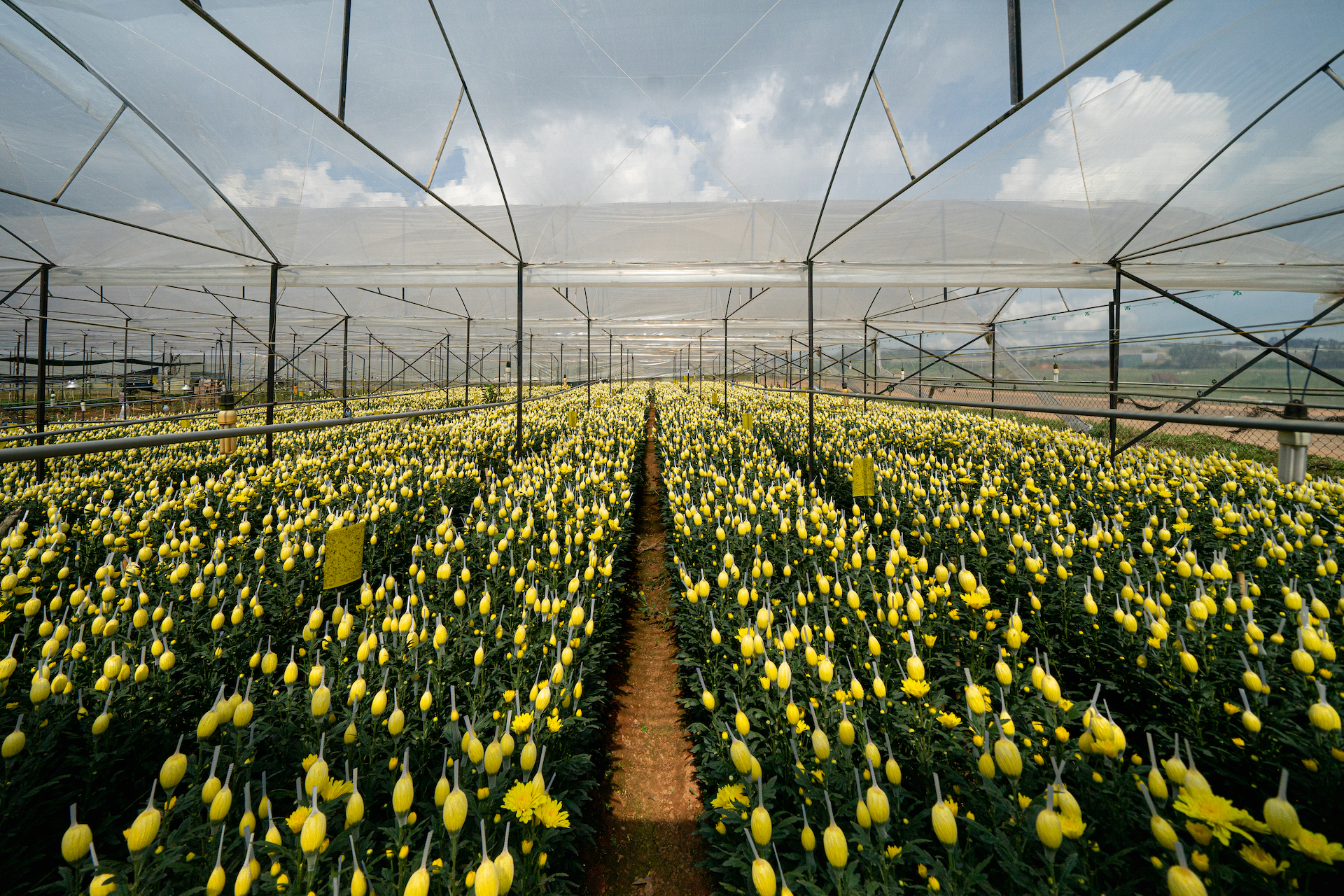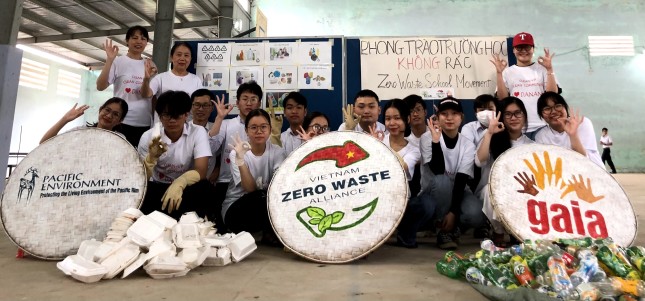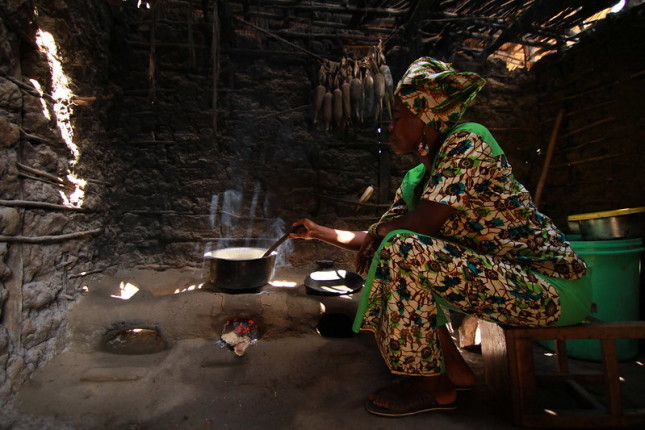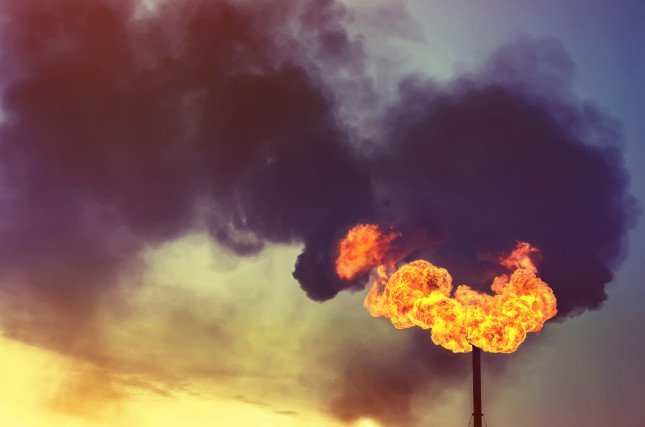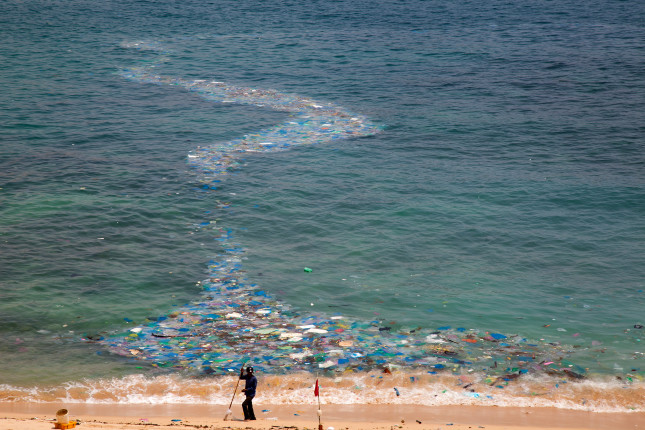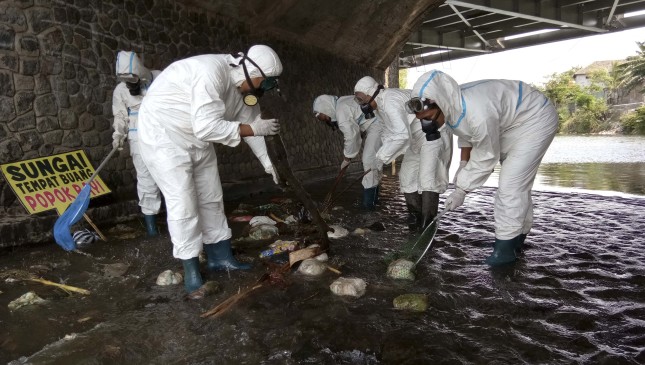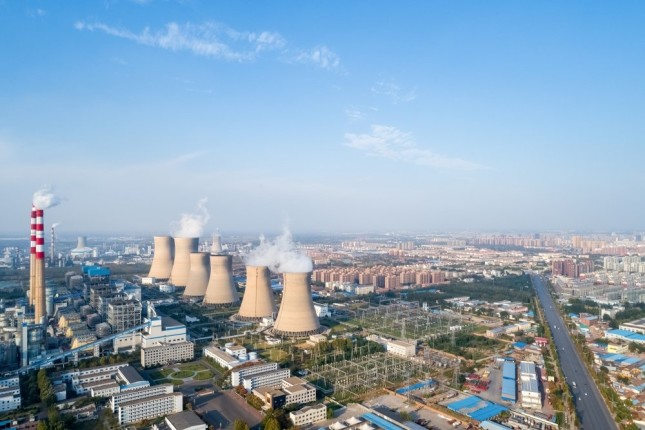-
The Powerful Policy Ripples of Washington State’s CETA
›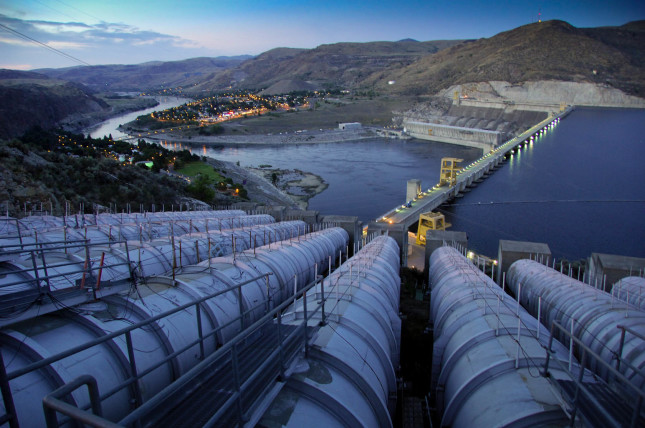
States are sometimes overlooked as drivers of climate action, yet some of them have been true leaders that bring significant influence. In Washington State, for instance, a strong coalition has worked to develop a smart, foundational climate policy for decarbonization in all sectors of the state’s economy.
-
Greenhouse Plastic Boom Blights Vietnam’s Vegetable Basket
›China Environment Forum // Guest Contributor // Vulnerable Deltas // June 30, 2022 // By Govi Snell & Thinh DoanCam Ly landfill was, until it was shut down in 2020, the primary dumping ground for the city of Dalat. A hilltop locale 5 kilometers from central Dalat, the landfill was the final destination for the majority of plastic used in agriculture in Vietnam’s Central Highlands region. But in August 2019, heavy rain prompted an outpouring of trash, sending plastic sheeting from greenhouses and untreated agrichemical bags and bottles rushing downhill. The incident covered lowland farms in thousands of metric tons of waste. -
The Zero-Waste School Movement Is Finding Its Stride In Vietnam
›During February’s Lunar New Year holiday, Vietnam Zero Waste Alliance coordinator Xuan Quach and her family were returning home to Thai Binh. When they were halfway home, Xuan’s brother nonchalantly tossed a plastic bottle out the window. Xuan opened her mouth to chide her brother, but was surprised when her niece scolded him, “Dad! Don’t contribute to plastic pollution!” Xuan grinned, knowing that all of her hard work educating the public about the dangers of plastic waste was paying off.
-
The Climate Solutions That Play Double-Duty
›
Finance for climate action is growing—however, much of this money is being invested in wealthier nations, while the regions where funds are needed most are often overlooked and underfunded by both public and private institutions. The good news for funders is that there are climate solutions that not only significantly reduce greenhouse gas emissions, but also create cascading social and public health benefits for communities on the frontlines of the climate crisis. For those looking to get the biggest return on their investment—for both people and planet—we offer two particularly promising solutions: ramp up funding for clean cooking and electricity where they matter most.
-
The Gasses That Will Make or Break Climate Change Mitigation
›New worldwide attention on methane has increased the potential for countries to implement methane policy in the energy sector. In November 2021, the countries gathered at COP 26 in Glasgow launched the Global Methane Pledge, an agreement that aims to reduce methane emissions at least 30 percent from 2020 levels by 2030. If the 111 participating countries are successful, this endeavor could curb over 8 gigatons of carbon equivalent emissions and prevent more than 0.2 degrees Celsius in warming by 2050.
-
Developing Data-Driven Solutions to Vietnam’s Ocean Plastics Problem
›
In December 2020, Vietnam’s Prime Minister Nguyễn Xuân Phúc signed the country’s National Action Plan for Management of Marine Plastic, setting an ambitious goal for the government to reduce marine plastic litter by 75 percent by 2030. Recent surveys indicate that plastics are the most prevalent and dangerous form of waste choking Vietnam’s beaches and waterways. Whether polystyrene, discarded nets, or mismanaged single-use plastics, these items are not just an eyesore, but they imperil the local ecosystem and fishing industry in Vietnam.
-
Grassroots Action to Combat Plastics in Asian Rivers: A Conversation with ECOTON Founders Daru Setyorini and Prigi Arisandi
›
In Sidoarjo City, Indonesia, student river detectives catalog the microplastics they sample from the Brantas River, the longest river in East Java. Plastic waste threatens this water that seventeen million people depend on for drinking water, fishing, and irrigation. Daru Setyorini and her team from ECOTON (Ecological Observation and Wetlands Conservation) organized this program to educate youth and inform policymakers on the scope of the problem.
-
China, Japan, and Korea: “Cleaner” Than the Worst Coal Plants, but Nowhere Near “Clean” Energy
›
The convergence of environmental pressures and economic recession due to the COVID-19 pandemic makes the future of international finance for coal-fired power plants increasingly uncertain. Environmental advocates have long been concerned about international coal investments locking host nations into decades of harmful air pollution and carbon dioxide emissions that cause global climate change. Now, the future of these planned coal plants is at a crossroads.
Showing posts from category pollution.


